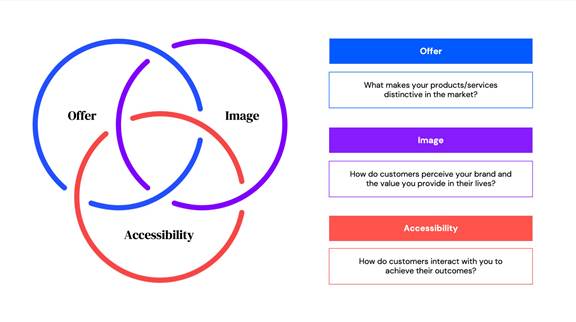Never before have brands and companies been so vocal about social or political issues. We look deeper into the values of a brand - why they’re important, how they’re communicated and why, more than ever, brands need to walk the walk in order to achieve lasting customer loyalty in an increasingly fragmented market.

Brand values matter more than ever
A few weeks ago, many brands and businesses posted black squares on their social media platforms in support of #blacklivesmatter, and while it was definitely positive, it raised the question - “do brands have an obligation to their customers to take a political stand?”
When we think about brands today, it is increasingly clear that a laser-focus on superior product/service attributes alone no longer guarantees the building of long-term customer loyalty. In an ‘always on’ social media environment, brands that manage to authentically and continuously engage their target customer base with content that speaks to the values of the community these customers belong to, consistently outperform brands that focus solely on delivering a quality product alone.
This requires brands to deeply consider the personas of their target customers and the values that would resonate most to them - socially, politically and ethically, creating a value-based community of customers that see brands as an extension of themselves.
This is no easy feat; it requires distinguishing between baseline brand value expectations and genuine points of differentiation.
For example, in recent years, there has been increasing pressure for businesses to act more sustainably, particularly for the fashion sector where the documentary ‘The True Cost’ and the Bangladeshi factory fires shed light on many sector issues. As a result, many brands have launched eco-friendly collections, made pledges to reduce their carbon footprint, and stepped away from the fashion calendar. However, a steady rise of new companies tackling this issue has arguably turned sustainability into a hygiene expectation for consumers as opposed to a differentiating brand value. (To explore this further, see our whitepaper on how responsible businesses are becoming a baseline expectation for consumers everywhere).
Watch-dog social media influencers (for example Diet Prada on Instagram) amplify the continued importance of ensuring that brands who do differentiate on values evidence their commitment across their operating models, instead of making baseless PR claims.
Our proposition strategy framework (below) has been designed to help brands navigate this challenge specifically. It holistically focuses on identifying drivers of your target customer’s perception of your proposition, which, once understood, guide the design of the target operating model your brand would require to deliver a continuously great customer experience, built on reinforcing your brand values at every touch point of their journey with you.
Kin + Carta Proposition Strategy Framework
